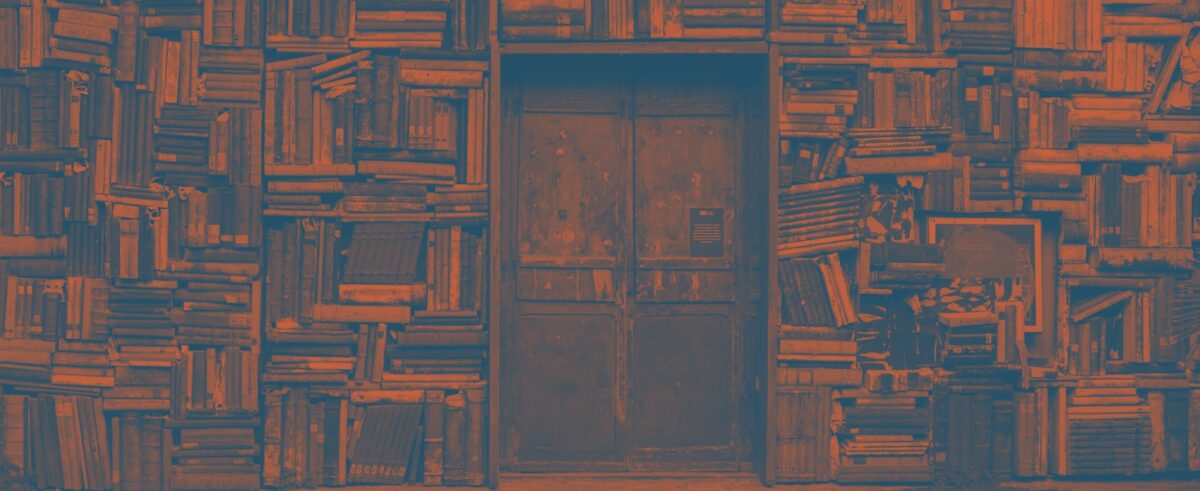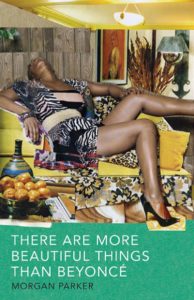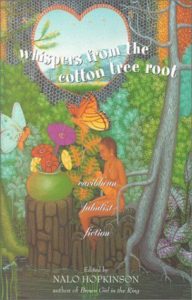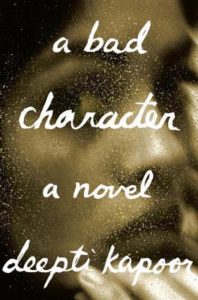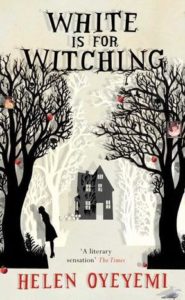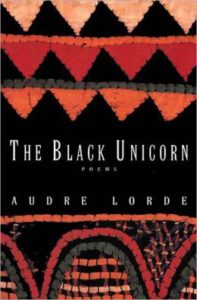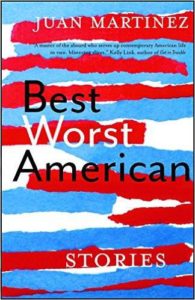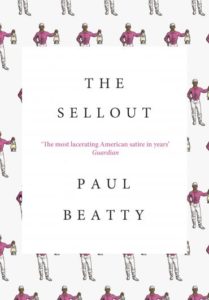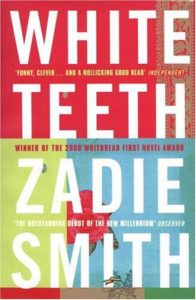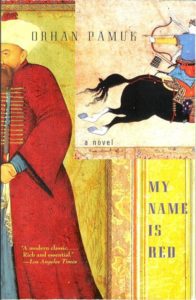It’s easy to feel overwhelmed with political responsibility now that democracy in the United States is slowly beginning to morph into fascism. In the past year, I have felt an exponentially increasing duty to learn how to combine my political and moral beliefs with my writing and art without coming off as impressing too much of “a point” in my narratives (and by “a point,” I mean a story with one singular message rather than a story that communicates the complexity of a particular experience). While I love to write magical realist prose and poetry, I have been presented with questions that combat the idea of “l’art pour l’art.” How can I integrate my writing with a voice that promotes equality and social justice? Which of my experiences might I share in order to illuminate new dimensions of my life as well as new dimensions of others’ lives? How can I write in such a way that I can create a community of empathy between me, other writers, and readers? Which writers can I turn to to help guide me in finding my creative, socially conscious voice? These questions have been looming around in my head for some time now. I wouldn’t be surprised if others who work at or use the UCWbL have been thinking about the same questions. First, let’s talk about some forms of literary activism.
“Activism is my rent for living on the planet.”
– Alice Walker
In her article, “What is Literary Activism?” Amy King argues that literature requires a set of diverse voices and beliefs in order for those who have led more privileged lives to empathize with and hear the voices of minorities whose voices have been systematically silenced. No one voice can speak for all of human experience. It is tantamount for writers and readers, now more than ever, to recognize that the white voice cannot continue to perform as the neutral norm. King “very much want[s] to counter the idea that a) a white person is always the trusted authority on a concept, especially an evolving one related to activism… and b) no one person should be the final authority on articulating a set definition or set of rules for what literary activism might entail. In other words, like most activism, literary activism must certainly include a range of ideas and actions and voices, even if some contradict or go against others” (“What is Literary Activism?” King). People need to read more work from the perspectives of writers from marginalized groups and encourage these writers to continue writing. Still, the experiences of white people must also be present in literature in order to provide a diverse set of reflections for the body politic. For example, how else would one be able to talk about diaspora, persecution, or Islam within displaced Balkan communities, experiences that often don’t currently fit into the America-centric rhetoric on immigration, race, and Islam? Literary activism comes in multiplicities and there is no singular way to write or read as a literary activist.
Literary activism strives to express experiences that foster a community of people who participate in a larger conversation to reduce suffering, promote equality, and increase general well-being. King acknowledges that she “… would never have to face some of the situations, microagressions, suppressions and oppressions other writers explicated in a poetics, via voice, such as in the passionate bravery of Audre Lorde…” (“What is Literary Activism?” King). Audre Lorde serves as one of the best examples of powerful black feminism that writers and activists should strive to emulate in today’s political climate and literary world. Lorde employed writing as a tool to further civil rights movements, and she increased the volume of the voices for people of color, women, the LGBT community, and many of the intersectional experiences in between. She stated in an interview with the magazine Black Women Writers, “‘I have a duty…to speak the truth as I see it and to share not just my triumphs, not just the things that felt good, but the pain, the intense, often unmitigating pain.'” Lorde’s work represented, and continues to represent, joy, pain, truth, silence, and voice.

Also, one shouldn’t forget the educational value of poetry and literature; Lorde not worked to fight for justice for marginalized communities, but she also employed her skills to educate young writers on how they can use their art to share their own and their communities’ experiences. She advertised an event, Poetry Readings and Rap Sessions, that she ran through The Academy of American Poets and The New York Public Library in 1970: “…under a National Endowment [for] the Arts Grant, I spent some time as Poet in Residence at Tougaloo College in Jackson, Mississippi, where I became convinced, anti-academic though I am, that poets must teach what they know if we are to continue being” (“Audre Lorde on…”). Poetry and other writing practices heal and create knowledge within all communities. This artistic movement is especially necessary for communities whose histories are absent or have been manipulated to fit a more positive conception of Americanism, an unjustifiable normalization of American identity as preserved by white men, which is not to discredit white males. However, it is time that people begin to think of serious literature outside of this Western white male context. But where does one begin to tackle diversifying one’s writing? Reading is the best place to start.
Reading plays a key role in literary activism. If people only read works that assume white-as-norm characters or work only written by white men, they’ll have a narrow view of intersectional experiences. Sure, there’s a place to read Hemingway, Fitzgerald, or whoever, but I highly recommend exploring literature outside of this history of white literature as well. There are tons of great works by writers of color as well as by Balkan and Asian writers. Below, I have composed a list of fiction to help diversify one’s own writing and perspectives:
THERE ARE MORE BEAUTIFUL THINGS THAN BEYONCE by Morgan Parker
WHISPERS FROM THE COTTON TREE ROOT: Caribbean Fabulist Fiction edited by Nalo Hopkinson
A BAD CHARACTER by Deepti Kapoor
WHITE IS FOR WITCHING by Helen Oyeyemi
THE BLACK UNICORN by Audre Lorde
BEST WORST AMERICAN by Juan Martinez
THE SELLOUT by Paul Beatty
WHITE TEETH by Zadie Smith
MY NAME IS RED by Orhan Pamuk
Additionally, local literary events around Chicago (or wherever you are) serve as great opportunities to participate in larger conversations about contemporary literature and social consciousness. Let’s be honest, especially if you are a student, it can be exhausting walking around the city all of the time holding up signs. Activism can happen as long as people are gathering and talking to one another; this dialogue constantly molds the way that we act. Here are some curated shows and events that you can attend if you are interested in seeing what people are writing, reading, and how our political conversations are evolving:
Local Events:
The Conversation
Spread Your Own Gossip
Volumes Bookcafe Reading Series
Women & Children First Events
City Lit Books Events
Poetry Foundation Events
826Chicago Events
Overall, the main objective of being a literary activist is to write, read, and gather with others to recognize and understand one another’s experiences. These actions form lasting bonds and impressions that continue to live long after we are all gone. After all, that’s why The Audre Lorde Project in New York City exists. Almost three decades after her death, people gather in Audre Lorde’s name to promote equality, and they’ll be flipping through the pages of her books for much longer. Maybe that will be us.
Works Referenced
“Audre Lorde.” Poetry Foundation. Poetry Foundation, n.d. Web. 5 Feb. 2017.
King, Amy. “What Is Literary Activism?” Poetry Foundation. Poetry Foundation, 18 Aug. 2015. Web. 5 Feb. 2017.
Discover more from UCWbLing
Subscribe to get the latest posts sent to your email.

